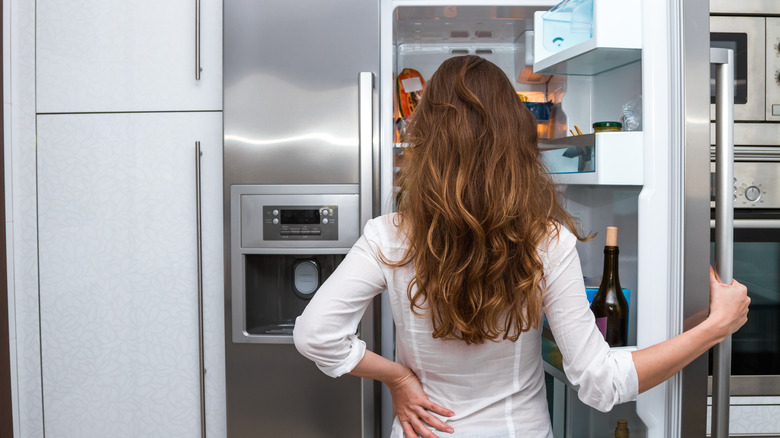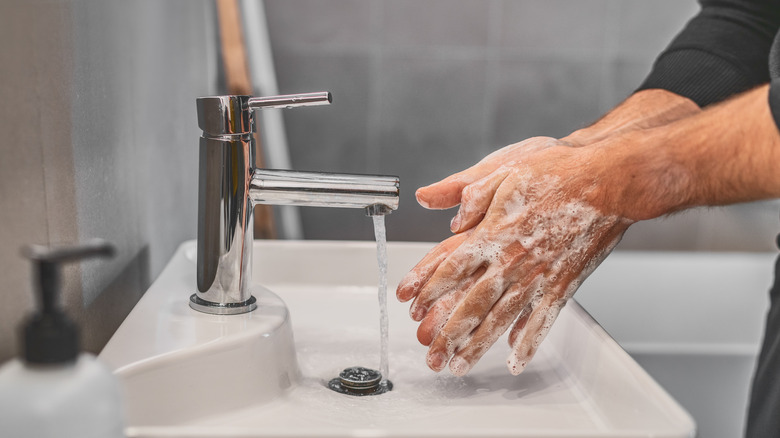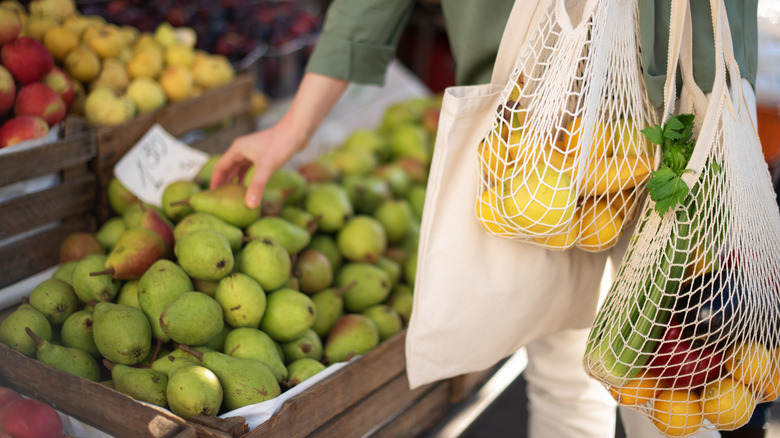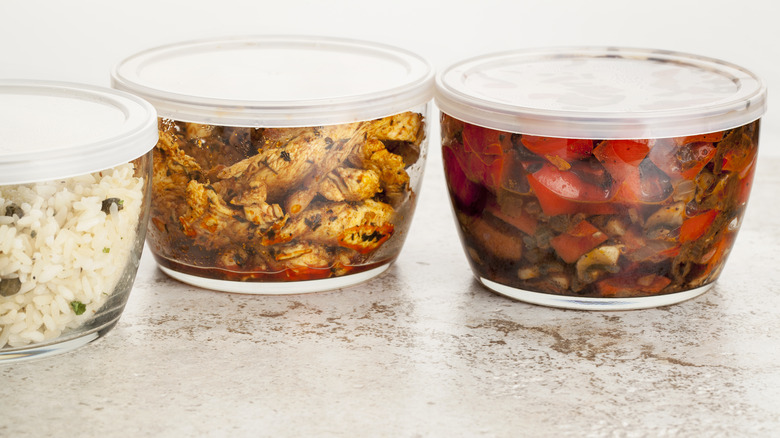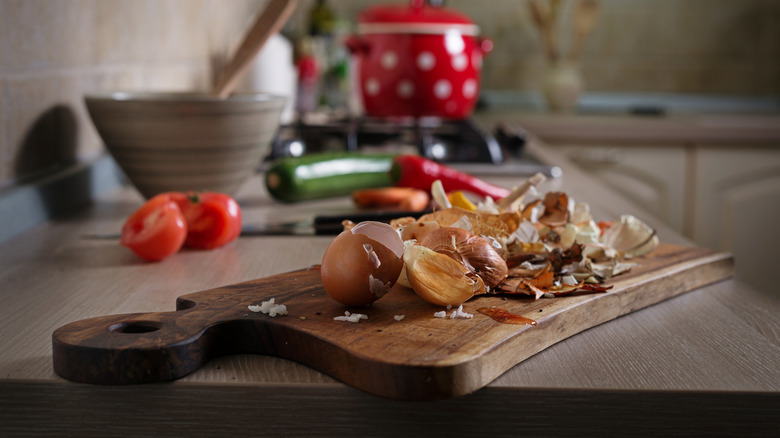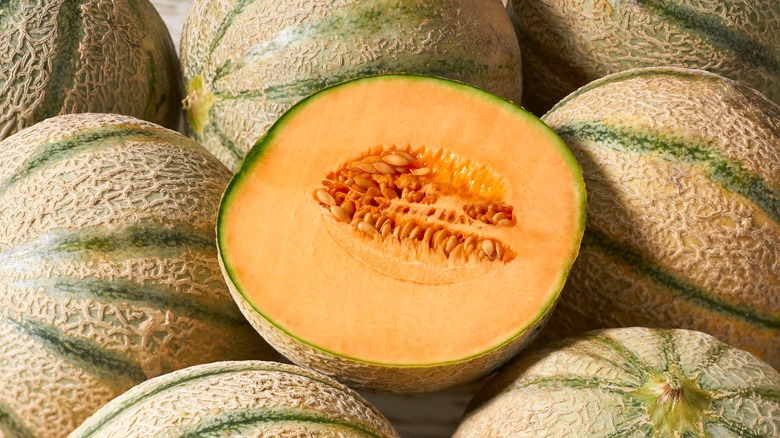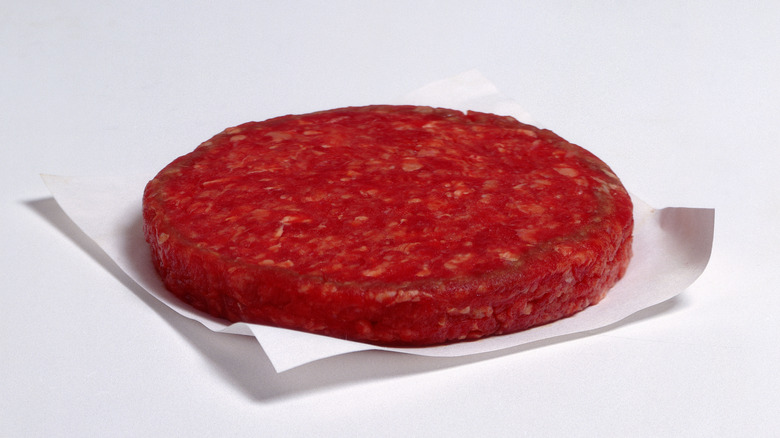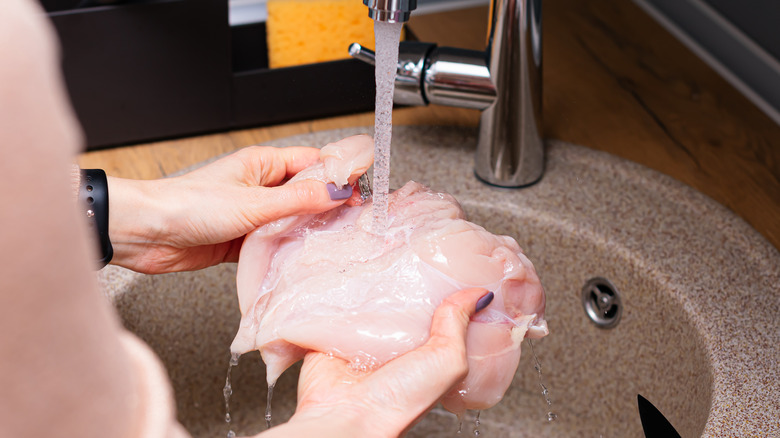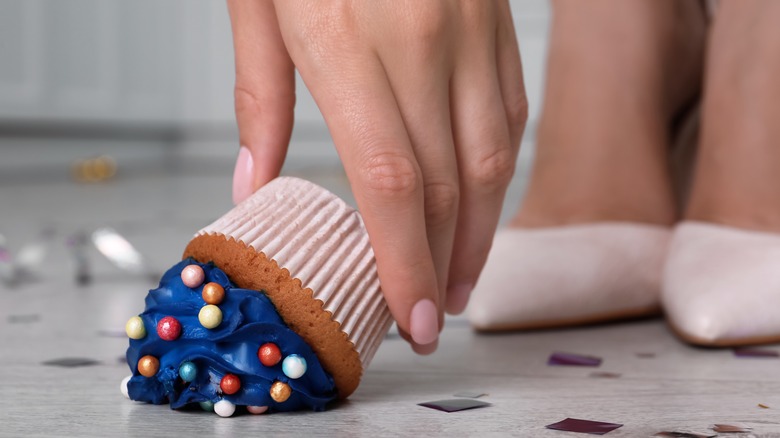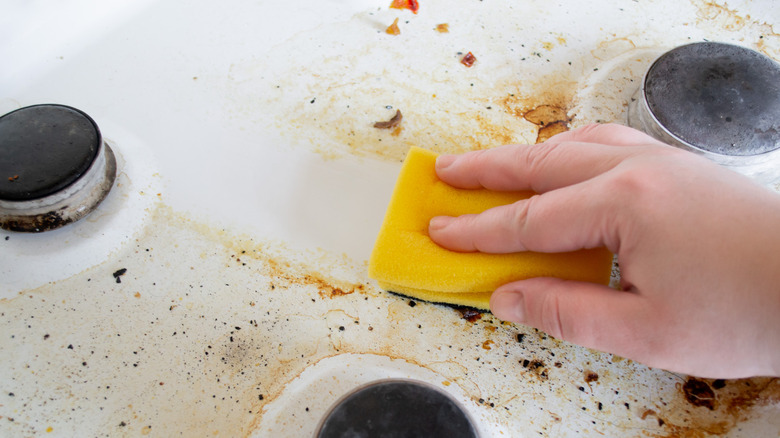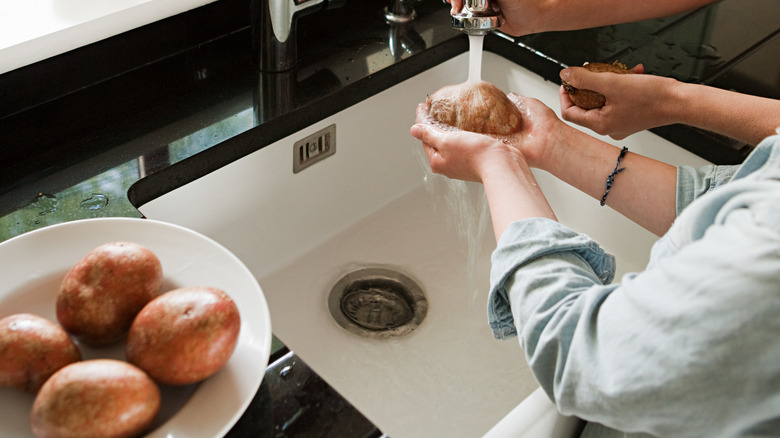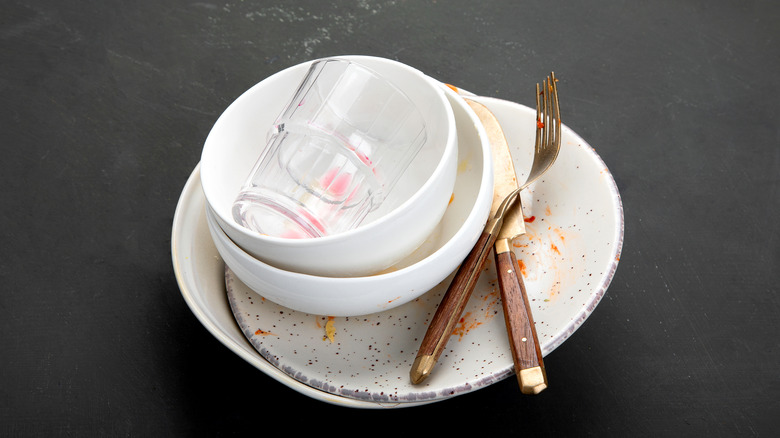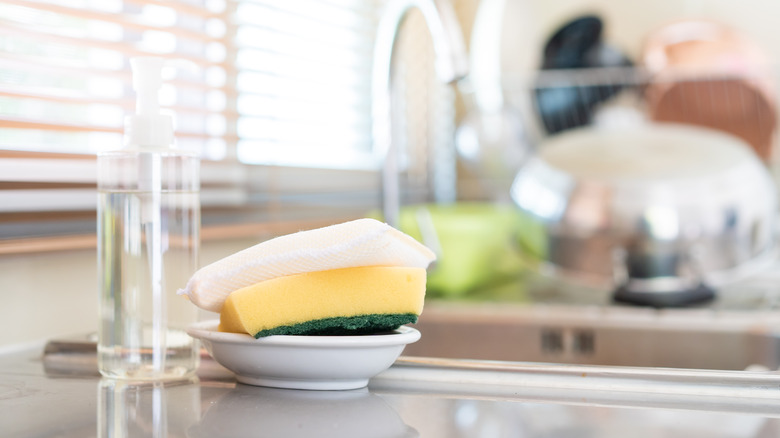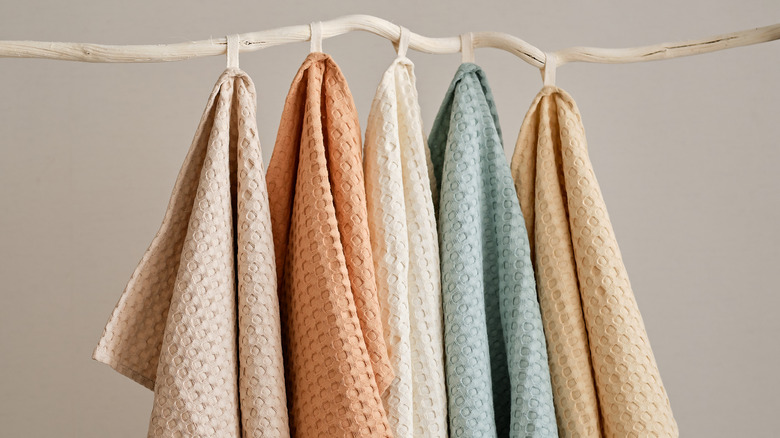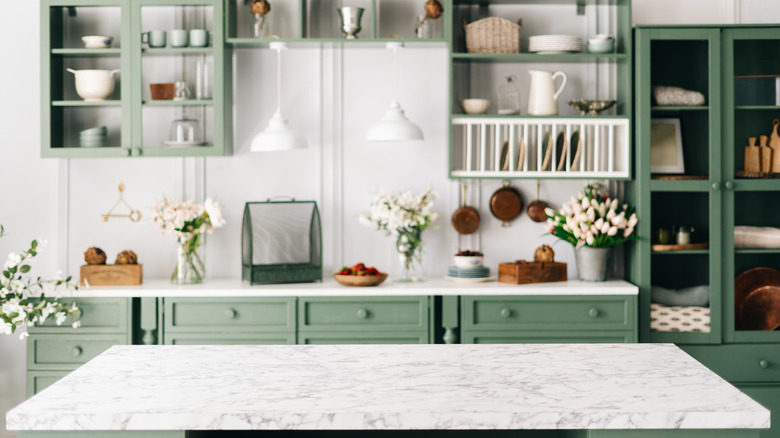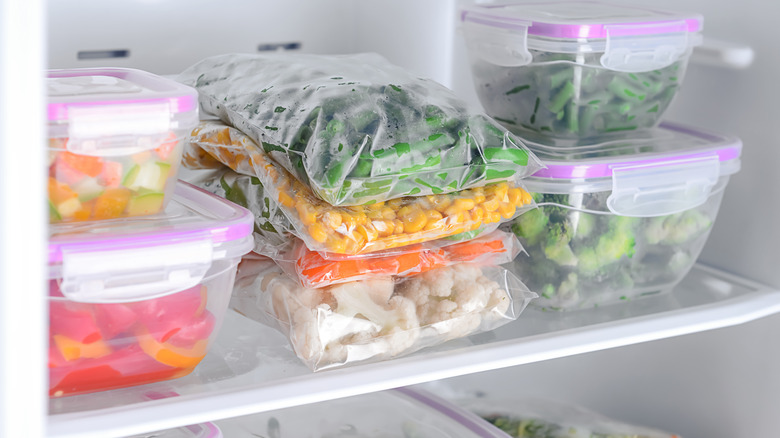15 Common Kitchen Habits That You Need To Break
Whether we are aware of it or not, there are things we instinctively do when we enter the kitchen. We might open the fridge door first to check what's inside then grab a drink, or hit the sink to wash our hands before we do anything else. These habits have become so automatic that we don't actually consider whether they are good or bad — which is how we end up doing things we could end up kicking ourselves for later.
Some of these habits may not carry serious consequences, but others are likely to result in cross-contamination of foods, which could make you or members of your family ill. Infectious disease expert Susan Rehm says: "During food prep, be aware that there are bacteria in food and touching it can spread it to other surfaces and potentially cause illness. Common bacteria found in the kitchen include E.coli, salmonella, shigella, campylobacter, norovirus, and hepatitis A," per Cleveland Clinic. There are many ways to breed and spread germs around the kitchen, and here we've listed a few of the most serious culprits.
Not washing your hands often enough
The best insurance you can take out against getting sick is to wash your hands. Often. The CDC recommends that you wash your hands after handling raw meats, before and after meal prep, after cleaning down your counters, after touching pets, and before eating.
Storing your reusable bags before cleaning them
Reusable bags are a gift to the environment, but you may not be singing their praises if you get sick because you used one that isn't clean. The American Cleaning Institute says bags need to be properly cleaned, disinfected, and dried before they are stored in a cool, dry place.
Leaving leftovers out
How many times have we parked leftovers on the kitchen countertop, and then consumed them the next day? UNL Food warns that cooked foods can only sit out for up to two hours without refrigeration, because their bacteria count can double every 20 minutes, making improperly stored leftovers a potential source of food poisoning.
Storing your cutting boards without washing them
Your cutting board may not look like it needs to be cleaned very often, but Consumer Reports begs to differ. They advise cleaning your cutting boards with hot, soapy water as soon as you've used them, and regardless of what you've cut, before rinsing and patting them dry with a towel.
Cooking or consuming fresh produce without washing
They may be fresh, but well-loved produce like cantaloupe, lettuce, tomatoes, and spinach aren't germ- and dirt-free, and are easily contaminated by bacteria and pesticides. Medical News Today explains the importance of washing fruit and vegetables thoroughly before cooking or eating them.
Thawing meat on the countertop
Food safety experts warn against thawing meat on your countertops, or leaving it outside of a cool environment — like your fridge — for too long. Meat is best thawed from frozen in your fridge, under cold water, or with the help of your microwave, per University of Illinois.
Washing raw meat under running water
While it can be tempting to wash raw, uncooked meat or chicken under running water, Healthline warns the practice could do more harm than good. Putting meat under running water also makes it splash, transferring bacteria in the process, and making this habit a dangerous one.
Following the five-second rule
If you think popping something into your mouth is safe after you've dropped it, think again. As Rutgers University Professor Donald Schaffner points out, "The 5-second rule is a significant oversimplification of what actually happens when bacteria transfer from a surface to a food. Bacteria can contaminate instantaneously," per Medical News Today.
Using the same sponge to clean countertops and dishes
Sponges might look clean, but Healthline warns that they are actually bacteria's happy space. Using separate sponges for different surfaces, like dishes and countertops, can help prevent cross-contamination. Having different sponges also allows them to dry out properly, thus making them usable for longer.
Ignoring your kitchen sink
Your kitchen sink may look clean, but microbiologist Dr. Charles Gerba says "There's more E. coli in a kitchen sink than in a toilet after you flush it" (per Food & Wine.) The Maids recommend scrubbing your sink down with a mixture of baking soda, distilled white vinegar, and some elbow grease.
Leaving dirty dishes in the sink
Cleaning up may not be on the list of fun things to do after a good meal, but as RealClear Science points out, leftover food on dirty plates is an invitation for bacteria to take root and grow at a rapid rate.
Not cleaning your cleaning tools
Your sponges and dishrags might be the first thing you reach for when you need to clean something up, but these may also be the last thing you think of cleaning. Michigan State University explains that neglected cleaning tools can harbor a wide range of harmful bacteria that can cause intestinal problems and skin infections.
Using the same kitchen towels for long periods of time
Kitchen sponges aren't the only ones that can spawn a bacterial army — reusable kitchen towels are too. As public health expert Susheela D. Biranjia-Hurdoyal tells Healthline, moist kitchen towels promote "the growth of potential pathogens responsible for food poisoning." Clean and change your towels often.
Using your counter as a chopping board
There are two reasons why you should reach for a clean chopping board instead of cutting items on your countertops. Other than the fact that your kitchen countertops can be germy, The Kitchen Store points out that you can also damage both your countertop and your knife — making that a lose-lose situation.
Overlooking a disorganized fridge
Taking the extra care to put your food away properly will help avoid spoilage and contamination, explains WebMD. This also means you'll be able to cut down on food waste, which is what happens to between 30 to 40% of the country's food supply, according to the US Department of Agriculture.
